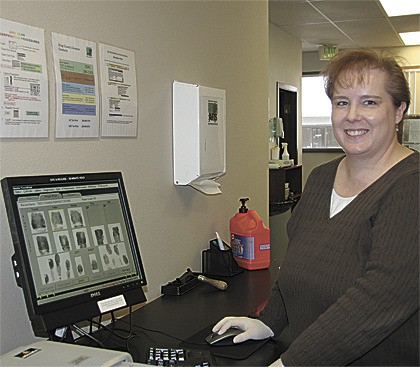Doing away with the ink and moving into the high-tech world, the King County Sheriff’s North Bend substation is using a computer-based fingerprinting system.
Updating its technology last month, the station’s Automated Fingerprint Identification System (AFIS) Livescan is a lot easier to use than the old ink pad.
“Ink was messy, time consuming,” said North Bend Police Chief Mark Toner. “You didn’t know for sure if the print was good. (When) they tell you that you have to do it again, the bad guys are gone or the citizen has to come back.”
In the old days, deputies had to fax the prints down to the AFIS lab. The lab would then blow up the prints electronically, trace them and then they’d submit them through the computer to check a match. This process would take about two hours.
With the AFIS Livescan, there is no more faxing and blow-ups. Sending the report electronically takes about five minutes.
“It forces you to be good,” Toner said. “If you roll a print and it’s not good, the computer won’t keep it until you have a good one.”
Besides taking prints to book offenders, the sheriff’s office fingerprints citizens who need them for jobs or gun licenses.
Last year, North Bend police fingerprinted 176 people for concealed pistol permit applications and 91 people for other reasons.
AFIS Livescan has been out since 1997, and Toner had used an earlier version in Maple Valley.
“We just caught up because our numbers and the numbers of people we’re printing supported it,” Toner said. “If we didn’t have enough people coming through, we’ll just stick with the ink, because this is a $15,000 machine.”
The ink pad is still around, though. If the computer breaks down, the deputies will have to do business the old-fashioned way.



